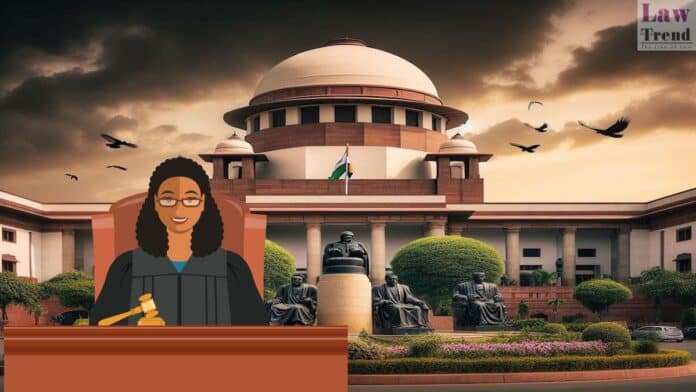The Supreme Court was informed on Wednesday that a woman Additional District Judge (ADJ) from Jharkhand, who had approached the top court after her request for child care leave was rejected despite being a single parent, has now been granted partial relief by the Jharkhand High Court.
The update was provided during the hearing of Kashika M Prasad vs State of Jharkhand before a Bench comprising Justices Prashant Kumar Mishra and Manmohan. The petitioner’s counsel submitted that while the High Court has now sanctioned child care leave, the duration granted is significantly less than what was initially requested.
“I have been given leave for 92 days. I had sought for 194 days,” the counsel said, adding that the approved leave is for the months from June to September, although the original application was for a period beginning in December.
Allegation of Adverse Remarks in ACR After SC Petition
A notable development in the proceedings was the petitioner’s grievance regarding her Annual Confidential Report (ACR). The ADJ’s counsel informed the Court that certain entries, which she found to be “disturbing,” were recorded after she moved the Supreme Court.
“Now there are some entries in my ACR. Which I have brought on record. They were subsequent to me filing the writ petition. I am an officer belonging to SC category and disposed of a huge number of cases. One of the best performing officers. There are suggestive entries made during performance counselling,” the counsel submitted.
He further pointed out that these entries were communicated to the judge on May 23, shortly after she filed her writ petition.
The Court, however, clarified that these allegations were not part of the main prayer and directed the petitioner to file a separate application seeking specific directions. “File a substantive prayer. It’s an application for directions. We’ll direct them to file a counter,” the Bench observed.
High Court’s Stand: Concern Over Precedent
Appearing on behalf of the Jharkhand High Court (administrative side), Senior Advocate Ajit Kumar Sinha argued that the litigation was a consequence of a prior transfer order. He raised concerns about the implications of granting long child care leave to judicial officers.
“This is for the exam of a 16-and-a-half-year-old child in 2026. The writ under Article 32 was filed right after her transfer. In her first letter, there was no reference to child care — she only sought a transfer to Ranchi or Bokaro,” Sinha said.
He also submitted that the sanctioned 92-day leave was in compliance with the Supreme Court’s earlier direction dated June 6. “We’ve already granted 94 days. That should make her happy. The total permissible leave is 720 days for an entire career. If judges go on leave for eight months at a stretch, it disrupts disposal of matters when the head of the district is away,” he argued.
Court Direction and Next Hearing
The Supreme Court allowed the 92-day leave to proceed and directed the High Court to file a counter-affidavit within four weeks.
“Let them proceed with 92 days. In the meanwhile, let them file counter,” the Bench said.
Towards the end of the hearing, the petitioner’s counsel sought directions to ensure that the judge’s salary is not withheld. In response, Sinha clarified, “This is very presumptive. Nobody is holding the salary.”
The matter will be taken up next in the first week of August.




